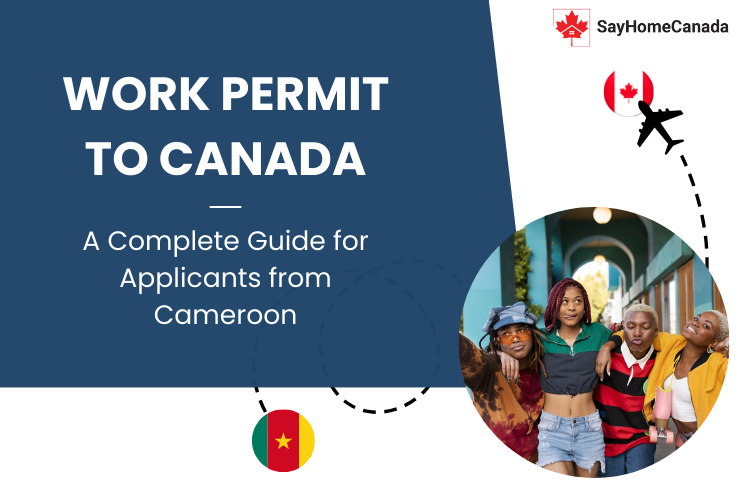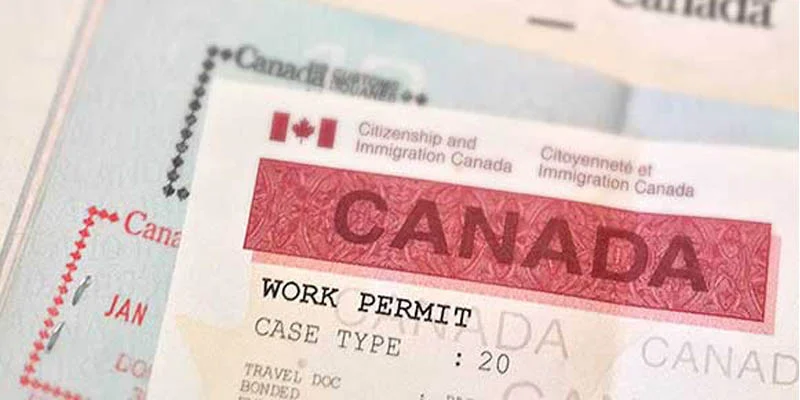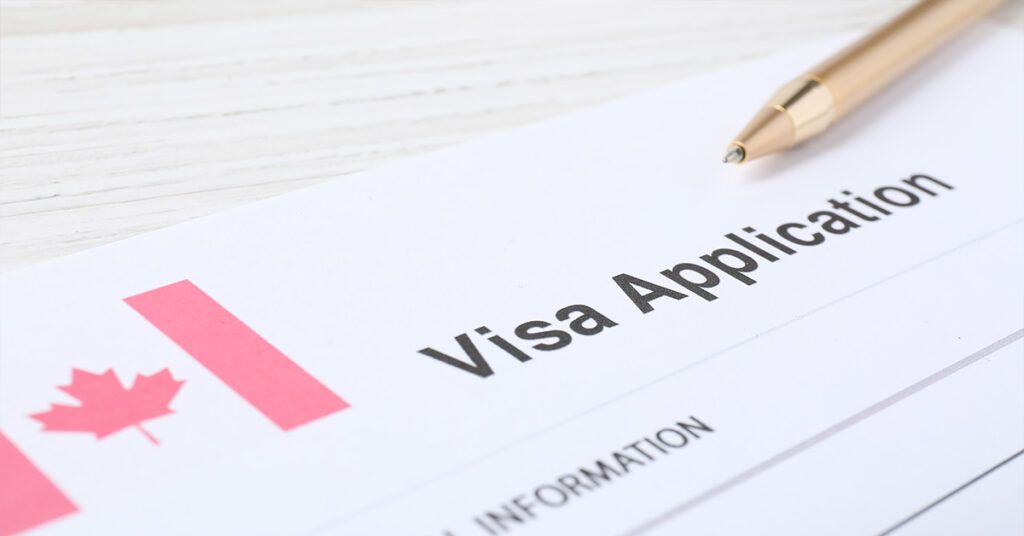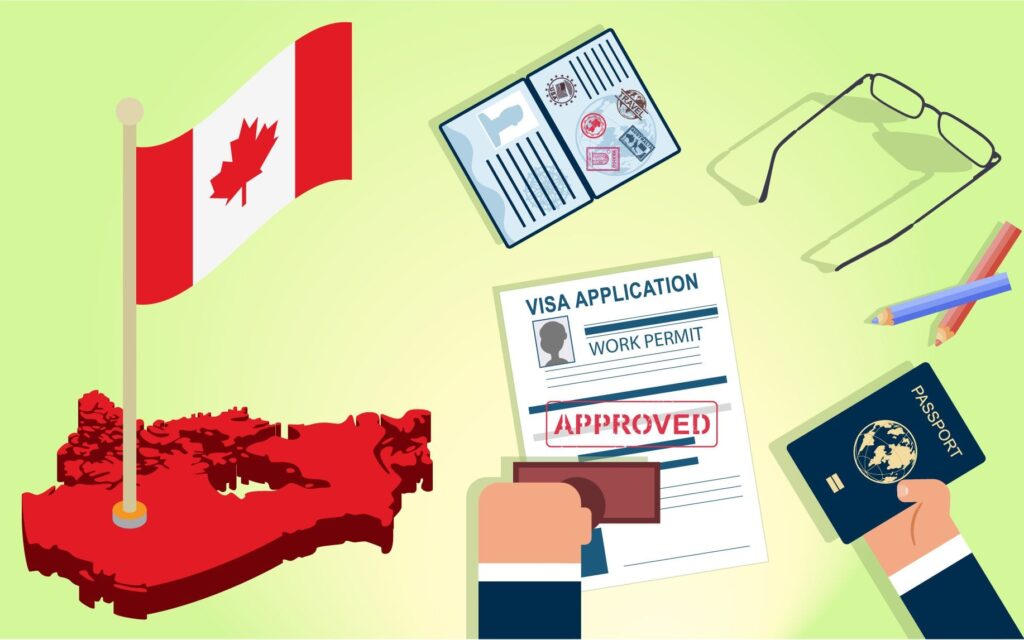
 Work Permit
Work Permit
Have you ever dreamed of starting a new life in Canada? For many in Cameroon, Canada represents the opportunity for better jobs, a higher standard of living, and the excitement of living abroad. But what does it take to obtain a Canada work permit from Cameroon? In this comprehensive guide, we’ll walk you through the application process, eligibility criteria, and essential tips tailored for Cameroonian applicants. By the end, you’ll have the knowledge you need to confidently take the next step toward your Canadian work journey.
Understanding the types of work permits available in Canada is essential before beginning your application. Canada generally offers two main types of work permits:
An Employer-specific work permit allows you to work in Canada for a specific employer under defined conditions, such as location and job role. This type of permit requires your Canadian employer to obtain a Labour Market Impact Assessment (LMIA), a document proving that no Canadian citizen or permanent resident is available for the position.
For instance, if a Canadian healthcare company is hiring a nurse from Cameroon, they would need to get an LMIA showing that the position couldn’t be filled by a Canadian. Once approved, the LMIA will support your work permit application, specifying the employer, job title, and location in Canada.
Pros of Employer-Specific Work Permit:
Cons:
An open work permit offers greater flexibility by allowing you to work for any Canadian employer (with some restrictions), making it ideal for those who don’t want to be tied to a single job or employer.
You may qualify for an open work permit if:
Pros of Open Work Permit:
Cons:

To apply for a Canada work permit, Cameroonian applicants must meet specific eligibility requirements. These requirements ensure that applicants are well-suited to work in Canada and meet Canadian employment standards.
Most applicants need a valid job offer from a Canadian employer to be eligible for a work permit. The job must align with Canada’s National Occupational Classification (NOC) system, a standardized system used to classify jobs based on skills, duties, and responsibilities.
For example, roles in healthcare, construction, and technology are high-demand fields in Canada and may have more opportunities for foreign workers. Ensuring your job offer matches an eligible NOC code increases your application’s success.
For employer-specific permits, a Labour Market Impact Assessment (LMIA) is essential. This document is proof that the employer has conducted a thorough search for Canadian citizens or permanent residents for the role but couldn’t find a suitable candidate. The LMIA process can be time-consuming, but it strengthens your application by showing you’re needed in the Canadian job market.
Tip for Cameroonians: If your employer agrees to sponsor you and assist with the LMIA process, it can make a significant difference in your work permit application’s success. A
Canadian immigration authorities often require proof of your qualifications—including degrees, certifications, or relevant work experience—to ensure that you’re capable of performing the job. This is especially crucial for skilled positions in healthcare, engineering, or other specialized fields.
For example, if you’re applying for a healthcare role, you’ll need to provide your nursing certificates or medical training documentation as proof of your skills.
Applicants must provide a police clearance certificate from Cameroon or any other country where they have lived for more than six months. This certificate confirms that you have no criminal record, ensuring that you meet Canada’s safety and security requirements.
Depending on the job and the length of your stay, some applicants may need to undergo a medical examination. This is especially relevant if you are coming from Cameroon and intend to stay for more than six months or work in health-related fields. Medical exams ensure that all foreign workers entering Canada are in good health and won’t pose a risk to public health.

This step-by-step guide will help you navigate the Canada work permit application process effectively.
Before starting your application, ensure that you have the following essential documents prepared:
Gathering these documents ahead of time helps avoid delays and ensures your application is ready for submission.
The application can be completed online or via paper. The most commonly used form for applicants outside Canada is IMM 1295. Make sure to fill out the form accurately and review each field for any errors, as mistakes can delay processing.
The application fee for a Canada work permit is currently CAD 155. Additional fees may apply if you require an LMIA or a medical exam. Always keep the payment receipt as proof, as it may be needed later in your application process.
Submit your application online through the Immigration, Refugees and Citizenship Canada (IRCC) portal, or mail it if using a paper application. Online submission is often quicker and allows you to track your application status.
Processing times for a Canada work permit can vary, especially for applicants from Cameroon. On average, processing may take several weeks to a few months depending on the type of permit, current IRCC processing loads, and the completeness of your application. To avoid delays, ensure all required documents are accurate and complete.
Once your application is approved, you will receive a Port of Entry (POE) Letter of Introduction and, if applicable, a work permit approval letter. Present these documents to the immigration officer when you arrive in Canada, and they will issue your official work permit.
Visa sponsorship involves your Canadian employer supporting your work permit application, often through the LMIA process. Here’s how it benefits Cameroonian applicants:
For job-seeking Cameroonians, platforms like Job Bank, Indeed Canada, and LinkedIn can be useful to find employers open to sponsorship.

Many Cameroonians wonder whether they should pursue permanent residency (PR) or a work permit. Here’s a brief comparison to help you decide:
Work Permit (Temporary)
A work permit allows you to work in Canada temporarily. It’s tied to a job offer and is limited in duration. For those looking for immediate employment opportunities, this is often the faster route.
Permanent Residency (PR)
Permanent residency allows you to live and work in Canada indefinitely. PR programs like Express Entry and Provincial Nominee Program (PNP) assess applicants based on skills, education, and experience. If you have a long-term goal of staying in Canada, starting with a work permit and later applying for PR through the Canadian Experience Class may be a suitable pathway.
“If your long-term goal is to make Canada your permanent home, consider using a work permit as a steppingstone to gather Canadian experience and improve your PR application chances.”
The processing time can vary, typically taking several weeks to a few months. For current estimates specific to Cameroon, check the IRCC website.
Need help tracking your application? Contact SayHomeCanada for guidance on the latest processing times and requirements.
Most work permits require a job offer, particularly the employer-specific type. However, open work permits are available in some cases, such as for spouses of skilled workers or international students.
Unsure if you qualify? SayHomeCanada can provide advice on whether you’re eligible for an open work permit.
Common fields include healthcare, construction, and technology, which are in high demand. These sectors are often more open to hiring foreign workers.
Explore career options and get tailored guidance by reaching out to SayHomeCanada.
Yes, applicants from Cameroon need to provide a police clearance certificate to confirm they have no criminal record. This is an essential part of your application.
Need assistance with documentation? SayHomeCanada can help you prepare your police clearance certificate and other required documents.
Yes, you can apply for PR after gaining work experience in Canada. Programs like the Canadian Experience Class (CEC) within Express Entry allow skilled workers to transition to PR.
Ready to explore your PR options? SayHomeCanada can guide you from work permit to PR in Canada.
Thank you for the response .
Let's Connect